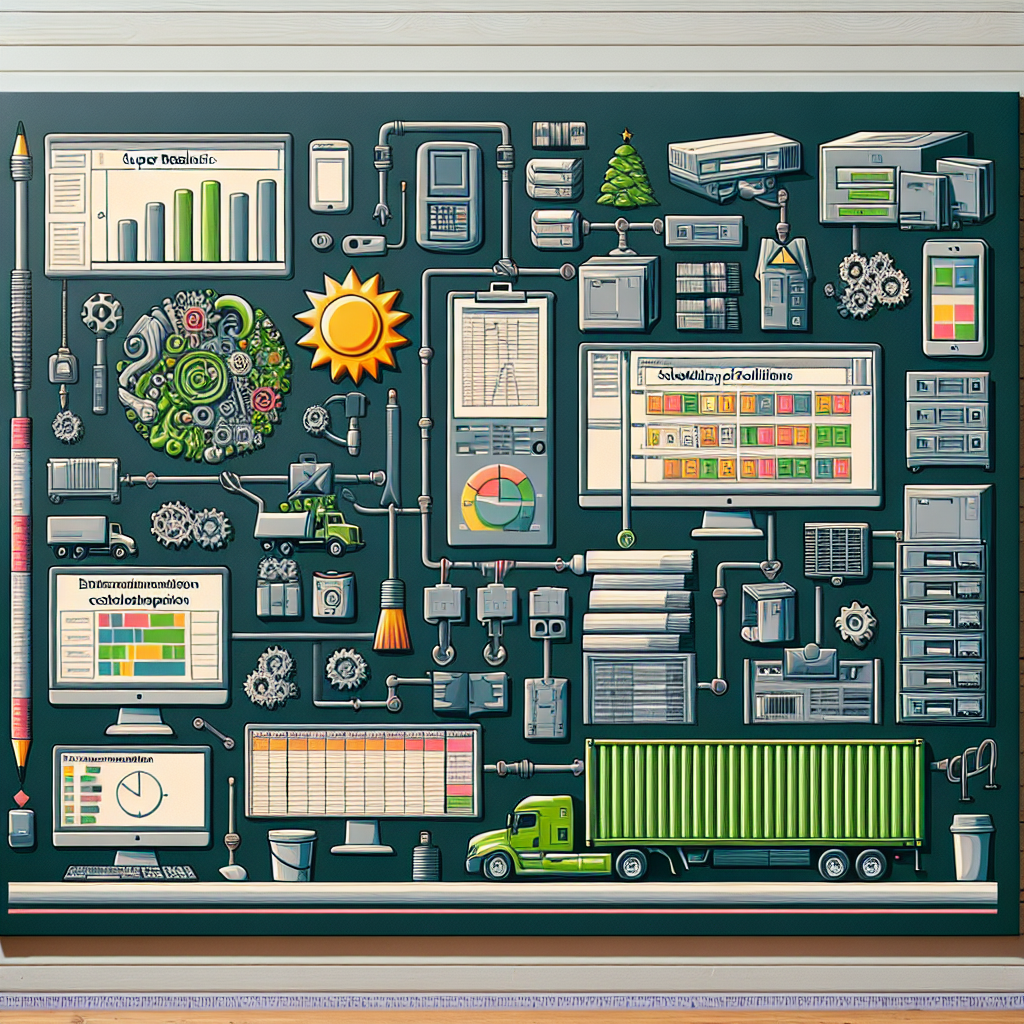Blog Ecobraz Eigre

How to integrate ERP/CMMS/CMDB with collection scheduling (API/EDI)?
Introduction to integrating ERP, CMMS and CMDB systems
Integrating management systems such as ERP, CMMS and CMDB with collection scheduling platforms is essential for optimizing operational flows, reducing errors and increasing logistics efficiency. Using APIs and EDI, it is possible to automate the exchange of information, guaranteeing precise schedules that are synchronized with the planning of activities.
What are ERP, CMMS and CMDB?
ERP (Enterprise Resource Planning) is a system that unifies various administrative, financial, stock and production areas. CMMS (Computerized Maintenance Management System) manages the maintenance of assets and equipment. The CMDB (Configuration Management Database) is a central repository that keeps detailed information on IT assets and their configurations.
Benefits of integration with collection scheduling
- Data centralization: avoids redundancy and divergences in schedules.
- Process automation: reduces manual interventions, minimizing human errors.
- Operational agility: allows real-time updating of appointments.
- Better traceability: facilitates monitoring of collections and history.
How API integration works
APIs (Application Programming Interfaces) are interfaces that enable direct communication between different systems. In the context of integration for collection scheduling, the API acts as a channel for sending collection requests, checking status and updating information dynamically.
The process involves:
- Identifying the API endpoints of the scheduling system.
- Configuring the ERP/CMMS/CMDB to consume these APIs.
- Mapping the necessary data, such as address, type of material, volume and available times.
- Implementing routines to automatically send requests via API.
- Validating and processing responses to confirm appointments.
Using EDI for integration
EDI (Electronic Data Interchange) is a standard for the electronic exchange of structured documents, used widely in logistics and the supply chain. For collection scheduling, EDI allows documents such as collection orders, confirmations and dispatch notices to be sent in a standardized way.
To integrate systems via EDI, it is necessary to:
- Define document types and compatible formats, such as EDIFACT, ANSI X12 or XML.
- Configure the ERP/CMMS/CMDB system to generate and interpret EDI files related to scheduling.
- Establish secure transmission protocols, such as AS2 or VAN.
- Implement validation processes to ensure data integrity and compliance.
Challenges and best practices in integration
Integrating these systems can present challenges, such as:
- Format compatibility: ensuring that data travels correctly between different platforms.
- Information security: protecting sensitive data during transmission and storage.
- Real-time synchronization: avoiding delays or duplications in scheduling.
Best practices involve:
- Detailed planning of the integration, including full technical documentation.
- Rigorous testing in a controlled environment before deployment.
- Continuous monitoring and updating of systems as requirements evolve.
- Training of technical teams to maintain and support integrations.
Conclusion
Integration between ERP, CMMS and CMDB systems with collection scheduling platforms via API or EDI represents a significant advance in logistics and operational management. By implementing these connections, the result is an operation that is more efficient, transparent and aligned with planning and execution needs.

Deixe um comentário
O seu endereço de e-mail não será publicado. Campos obrigatórios são marcados com *